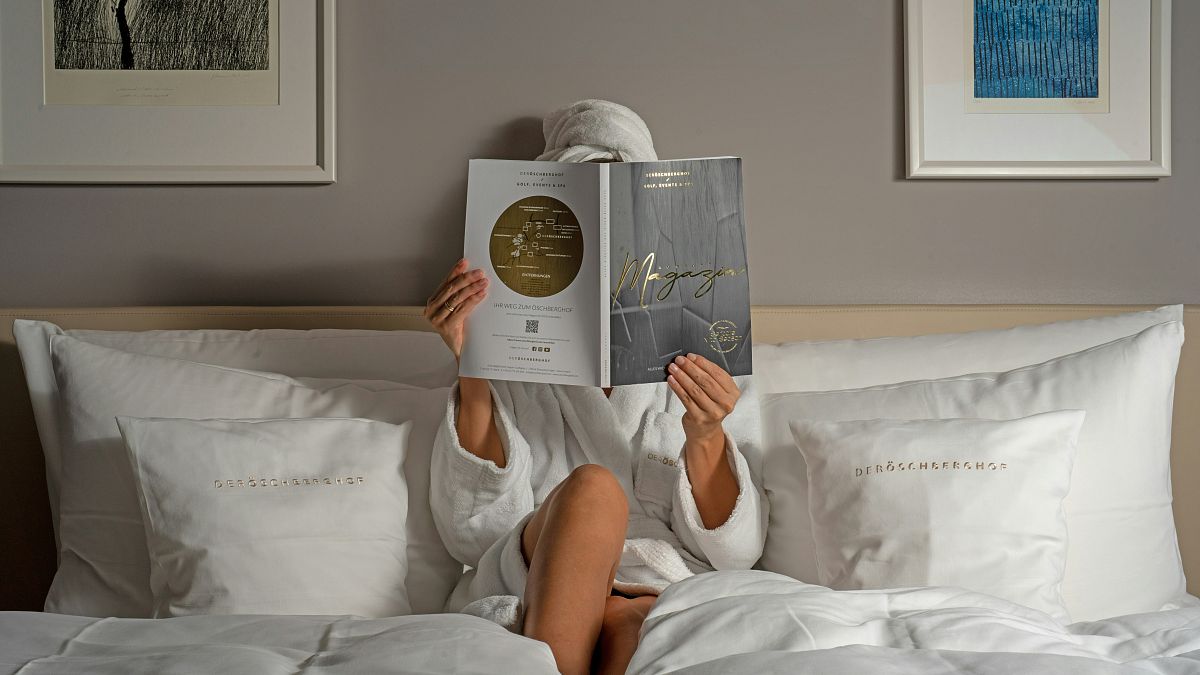A recent survey found that 39 per cent of Brits ranked rest and relaxation top of their holiday requirements this year.
Getting a good night’s sleep is quickly becoming one of the top reasons to travel.
One in four British people is now considering booking a holiday focused primarily on sleep, according to KAYAK, a travel search engine.
Dubbed a sleepcation, this kind of holiday sees travellers opting for hotels with sleep-enhancing amenities like rejuvenating mattresses and pillow menus.
Even if your accommodation doesn’t offer dedicated sleep services, there are some things you can keep in mind to make travelling more restful.
Best destinations for a sleepcation
KAYAK’s survey has found that 39 per cent of Brits ranked rest and relaxation top of their holiday requirements this year.
But whilst over half of travellers report better sleep quality on holiday, another 39 per cent found that they often return from holiday in need of another one.
KAYAK has launched a Sleep Tourism Guide with advice from sleep scientist Dr Jason Ellis, director of the Northumbria Centre for Sleep Research.
“It’s clear from KAYAK’s new research that we’re sleep-deprived as a nation. ‘Sleepcation’ holidays are a great way to pay off some of the ‘sleep debt’ we experience in daily life,” Ellis says.
“By choosing the right destinations that excel in factors that contribute to better sleep, travellers can maximise their rest and return home feeling truly rejuvenated.”
KAYAK analysed their most searched-for destinations for accommodation worldwide and scored them against their potential for enhancing sleep quality.
They evaluated factors including air quality, noise pollution, political stability, proximity to nature, as well as access to accommodation with spa amenities and accommodation prices.
The top-ranked sleepcation destination was Sligo in Ireland. The tranquil coastal destination on Ireland’s wild west coast balances a high air quality and political stability score with low noise pollution, along with a wide range of accommodation featuring spa and wellness amenities.
KAYAK travel experts recommend a light hike up Benbulben Mountain to take in the panoramic views and fresh air of the Irish countryside.
Funchal in Portugal came in third place with the highest air quality score in the top ten and the second-lowest score for noise pollution.
KAYAK also recommends the destination for its “serene ocean views [and] lush botanical gardens such as Monte Palace Tropical Garden.”
How to get better sleep while travelling
The sleep guide also includes advice from Ellis for how to stay rested while travelling.
When choosing accommodation, check photos to assess bed linen and curtain quality.. Look out for blackout curtains to minimise the effects of light pollution on your sleep.
If you need a nap on arriving at your destination, Ellis says you should try drinking a cup of coffee right before – dubbed a ‘nappuccino’.
“The caffeine kicks in just as you wake up, combining the restorative effects of a short nap with an extra boost of alertness,” he says.
He also advises exposure to the sun shortly after waking up via a morning walk or having breakfast outdoors to naturally adjust your body clock.
During the day, you should follow the 90/20 rule. “Just like we have a night rhythm we also have a daytime one,” Ellis explains. “Abide by the 90/20 rule – 20 minutes of downtime for every 90 minutes of activity – to promote better sleep in the evening.
He also recommends foods with sleep-promoting effects to help you wind down.
“One of my favourites is the humble kiwi fruit which contains polythene, an ingredient that promotes mild sedative effects,” he says. “To get the best slumber during your trip, start eating two kiwis after dinner, three days before you travel.”
Read the full article here
